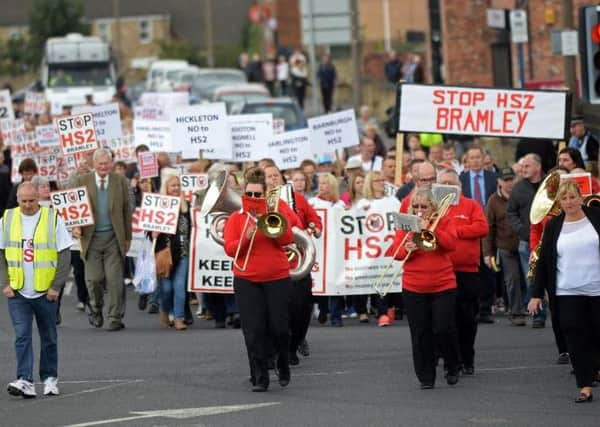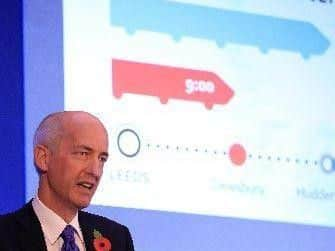Changing tracks on HS2: How David Higgins hopes economic case will change opposition in Yorkshire


From violent brawls and protest marches to bitter political battles, there have been few issues that have caused more controversy in Yorkshire over the past few years than HS2. But Sir David Higgins, chairman of High Speed Two Ltd, hopes a major new report developed over 12 months to highlight its economic argument will start to change the public conversation about the often-derided scheme.
Advertisement
Hide AdAdvertisement
Hide Ad“Hopefully, it puts to bed the argument of ‘Why do we need HS2, why can’t we patch up the existing Victorian railway network?’,” Higgins tells The Yorkshire Post.


Following workshop discussions with around 100 businesses, universities and local councils, HS2 officials have produced a report called Getting the best out of Britain which suggests the £56bn scheme is the key to bridging the gap between London and the rest of the country, both physically and economically. In Yorkshire, the report claims, HS2 presents a golden opportunity to tackle the region’s lagging productivity levels, which are the second lowest in the whole of England and in the Leeds City Region alone are estimated to be costing the local economy around £14bn.
The in-depth report sets out the region’s problems clearly; 55 per cent of businesses in Yorkshire and the Humber are dissatisfied or very dissatisfied with the region’s transport infrastructure, including the congestion that clogs up the M1 and M62 and the overcrowded, slow-running and infrequent trains that mean a 40-mile journey between two major cities in Sheffield and Bradford takes a minimum of one hour and 16 minutes.
That has contributed to a situation where productivity levels have fallen in Yorkshire since 1997 to far below the national average; a matter of considerable concern given that workers in France, Germany and the US produce around as much in four days as the average British worker does in five.
Advertisement
Hide AdAdvertisement
Hide AdBut the study also highlights the region’s incredible capabilities and potential – from advanced manufacturing in Sheffield, to Leeds’s thriving digital sector and York’s world-class expertise in biotechnology.


Higgins says: “The excuse that is often given about the productivity gap between the North and the South is the North doesn’t have the right level of skills and expertise. This report says that is not true and that is not what is holding the region back and causing the productivity gap.”
The report, perhaps unsurprisingly for one commissioned by HS2 themselves, suggests high-speed rail will be a key part of the solution to the problem.
“The smaller scale of urban areas makes it difficult for city regions in the North of England to secure the same degree of scale and success as their counterparts in the South East. In the North, the population is spread out across a number of cities and the density of employment in urban areas is lower than in the rest of England.
Advertisement
Hide AdAdvertisement
Hide Ad